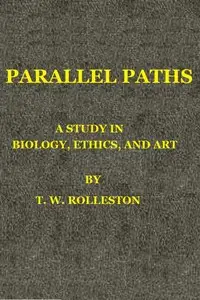"Plotinos: Complete Works, v. 4" by Plotinus is a philosophical treatise written in the early 20th century. This volume forms part of a comprehensive collection of Plotinus’ works, focusing particularly on his profound insights into metaphysics, ethics, and the nature of happiness and existence. The texts aim to explore complex ideas, such as whether animals and plants can be regarded as happy, situating them within a framework of various philosophical schools like Aristotelianism and Stoicism. The opening of this volume engages readers with a rigorous examination of the concept of happiness. Plotinus raises questions about the nature of happiness and whether it can be assigned to non-human life forms, including animals and plants, arguing for a broader understanding of happiness that transcends mere sensation or rationality. He contrasts the lives of different creatures, asserting that true happiness is rooted in a complete realization of one’s nature, suggesting that happiness derives not just from fulfilling basic instincts or pleasures, but from a deeper alignment with the essence of being. This philosophical inquiry sets the stage for an exploration of the relationship between happiness, the good, and the essential qualities that define existence. (This is an automatically generated summary.)

Plotinos: Complete Works, v. 4 In Chronological Order, Grouped in Four Periods
By Plotinus
"Plotinos: Complete Works, v. 4" by Plotinus is a philosophical treatise written in the early 20th century. This volume forms part of a comprehensive ...
Plotinus was a Greek Platonist philosopher, born and raised in Roman Egypt. Plotinus is regarded by modern scholarship as the founder of Neoplatonism. His teacher was the self-taught philosopher Ammonius Saccas, who belonged to the Platonic tradition. Historians of the 19th century invented the term "neoplatonism" and applied it to refer to Plotinus and his philosophy, which was vastly influential during late antiquity, the Middle Ages, and the Renaissance. Much of the biographical information about Plotinus comes from Porphyry's preface to his edition of Plotinus' most notable literary work, The Enneads. In his metaphysical writings, Plotinus described three fundamental principles: the One, the Intellect, and the Soul. His works have inspired centuries of pagan, Jewish, Christian, Gnostic, and early Islamic metaphysicians and mystics, including developing precepts that influence mainstream theological concepts within religions, such as his work on duality of the One in two metaphysical states.

















